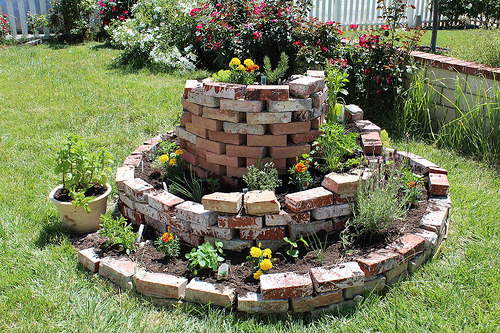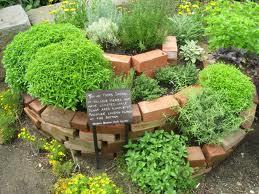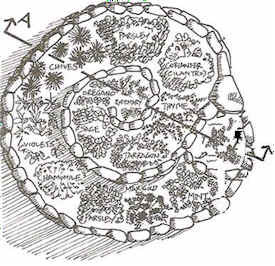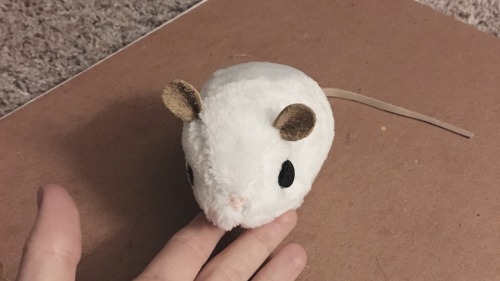Why Do My Interests In Canning, Couponing, And Homesteading Overlap So Often With Blogs With Titles Like ‘The
Why do my interests in canning, couponing, and homesteading overlap so often with blogs with titles like ‘The Obedient Housewife’?
More Posts from Sunlightandbasil and Others
In regards to the expensive nature of saffron…
‘stares into distance, takes a long drag off of what is, if you look closely, in fact a candy cigarette’
what if I told you…that saffron…is actually not that hard to grow at home for your own use.
Oh look a place you can buy the bulbs.
If you live in a climate colder than zone 6…as I do…plant them in containers and move the containers into a basement or garage during the winter.
They bloom in fall, and are quite lovely. And also you get saffron.
Hey Goblins, uh
Did you know, that you can make an AWESOME journal for your adventures ALL ON YOUR OWN from a cereal box and paper/scraps that you likely have at home/can get from friends or family/you may find around your environment?
They’re called Junk Journals and they’re my entire life.
Im gonna do my best to walk you through how to make one! First, get you a mini cereal box! I use boxes from those cool multipacks of cereal that you can find at Walmart!

And then cut it out so it looks like this! (I already had one cut, so I’m gonna use that)

That “nutrition facts” side is gone become your spine!
Next, find some paper to use to decorate your cover! I was lucky enough to be gifted a bunch of scrapbooking paper, so I’m gonna use that, but you can also use newspaper, paper from books/magazines, junk mail, napkins, paper towels (excellent texture), etc!

Go ahead and glue that paper to your box (to cover the cereal logo) and cut it out! It’ll look like this;


Next you need to find your pages! Again these can be anything! Junk mail, envelopes, receipts, food wrappers, magazine/book pages, scrapbook paper, computer paper, construction paper, ANYTHING. Just grab a whole bunch!
You’re gonna want to fold them in half and cut them to the size of one of the covers of your box, and layer other pages inside of it to make your signatures, like this!


Each signature should be about 7-10 pages. You don’t want them too thick, otherwise the inner pages start sticking out when folded in half. You’re gonna have a LOT of these signatures, as you wanna fill the area in the spine as best as possible. For this one I’m using 7 page signatures. Here’s a pic to show just how much paper you’ll need

Each of these signatures are 7 pages, 6 signatures have only filled about half of the spine, so I’ll need probably 6 more.
Next you gotta figure out how you want them in your journal. Personally, I like to sew them into the spine, but you can also keep them in the spine with rubber bands, so you can have removable pages! (Be weary that rubber bands may break over time! So you may want to always keep extra bands near it to replace in case one snaps. This is why I prefer sewing them in) I find it best to look up on YouTube how to sew in signatures, just because having someone walk you through it where you can see what they’re doing is easiest. If you can’t access YouTube, there’s plenty of text tutorials on how to sew in signatures online, or you can message me! I’m not gonna go too into detail, but here’s the jist;


Okay so I’m a forgetful gob and I hecken forgot to take pictures as I was going along kahshshshsh
But essentially, I sewed in the pattern similar to the one I drew. The dots are where the needle goes all the way through to the back. I also like to use rubber band as an extra mode of support but you can do one or the other. I also like both cuz I can tuck stuff in em between the pages. Since I didn’t take more pictures; I’d really recommend looking up a how-to on YouTube or w/e if my badly drawn diagram isn’t clear enough (heh sorry about that)
Next, I glue fabric to the spine. It spruces it up quite a lot and holds the rubber bands in place, plus it give more support to the spine since there’s gonna be a lot of strain on it.
Only 10 photos per post, so I gotta post this and reblog it with the rest.
10 Ways to Observe the Moon for International Observe the Moon Night
On Saturday, October 5, we will host the 10th annual International Observe the Moon Night. One day each year, everyone on Earth is invited to observe and learn about the Moon together, and to celebrate the cultural and personal connections we all have with our nearest celestial neighbor! This year is particularly special as we mark the 50th anniversary of the Apollo 11 Moon landing while looking forward to our Artemis program, which will send the first woman and next man to the Moon.
There are many ways to participate in International Observe the Moon Night. You can attend an event, host your own or just look up! Here are 10 of our favorite ways to observe the Moon.
1. Look up

Image Credit: NASA’s Scientific Visualization Studio/Ernie Wright
The simplest way to observe the Moon is simply to look up. The Moon is the brightest object in our night sky, the second brightest in our daytime sky and can be seen from all around the world — from the remote and dark Atacama Desert in Chile to the brightly lit streets of Tokyo. On October 5, we have a first quarter Moon, which means that the near side of the Moon will be 50 percent illuminated. The first quarter Moon is a great phase for evening observing. Furthermore, the best lunar observing is typically along the Moon’s terminator (the line between night and day) where shadows are the longest, rather than at full Moon. See the Moon phase on October 5 or any other day of the year!
2. Peer through a telescope or binoculars

Image Credit: NASA/Molly Wasser
With some magnification help, you will be able to focus in on specific features on the Moon. In honor of this year’s 50th Anniversary of the Apollo 11 Moon Landing, see if you can find Mare Tranquillitatis (Sea of Tranquility)! Download our Moon maps for some guided observing on Saturday.
3. Photograph the Moon

Image Credit: NASA/GSFC/Arizona State University
Our Lunar Reconnaissance Orbiter (LRO) has taken more than 20 million images of the Moon, mapping it in stunning detail. You can see featured, captioned images on LRO’s camera website, like the crater seen above. And, of course, you can take your own photos from Earth. Check out our tips on photographing the Moon!
4. Relax on your couch

Image Credit: NASA’s Scientific Visualization Studio/Ernie Wright
Is it cloudy? Luckily, you can observe the Moon from the comfort of your own home. The Virtual Telescope Project will livestream the Moon from above the Roman skyline. Or, you can take and process your own lunar images with the MicroObservatory Robotic Telescopes. Would you prefer a movie night? There are many films that feature our nearest neighbor. Also, you can spend your evening with our lunar playlist on YouTube or this video gallery, learning about the Moon’s role in eclipses, looking at the Moon phases from the far side and seeing the latest science portrayed in super high resolution.
5. Touch the topography

Image Credit: NASA GSFC/Jacob Richardson
Observe the Moon with your hands! If you have access to a 3D printer, you can peruse our library of 3D models and lunar landscapes. This collection of Apollo resources features 3D models of the Apollo landing sites using topographic data from LRO and the SELENE mission. The 3D printed model you see above is of the Ina D volcanic landform.
6. Make and admire Moon art

Image Credit: LPI/Andy Shaner
Enjoy artwork of the Moon and create your own! For messy fun, lunar crater paintings demonstrate how the lunar surface changes due to frequent meteorite impacts.
7. Listen to the Moon
Image Credit: NASA Explorers: Apollo/System Sounds
Treat your ears this International Observe the Moon Night. Our audio series, NASA Explorers: Apollo features personal stories from the Apollo era to now, including yours! You can participate by recording and sharing your own experiences of Apollo with us. Learn some lunar science with the second season of our Gravity Assist podcast with NASA Chief Scientist, Jim Green. Make a playlist of Moon-themed songs. For inspiration, check out this list of lunar tunes. We also recommend LRO’s official music video, The Moon and More, featuring Javier Colon, season 1 winner of NBC’s “The Voice.” Or you can watch this video featuring “Clair de Lune,” by French composer Claude Debussy, over and over.
8. Take a virtual field trip

Image Credit: NASA/SSERVI
Plan a lunar hike with Moon Trek. Moon Trek is an interactive Moon map made using NASA data from our lunar spacecraft. Fly anywhere you’d like on the Moon, calculate the distance or the elevation of a mountain to plan your lunar hike, or layer attributes of the lunar surface and temperature. If you have a virtual reality headset, you can experience Moon Trek in 3D.
9. See the Moon through the eyes of a spacecraft

Image Credit: NASA/GSFC/MIT
Visible light is just one tool that we use to explore our universe. Our spacecraft contain many different types of instruments to analyze the Moon’s composition and environment. Review the Moon’s gravity field with data from the GRAIL spacecraft or decipher the maze of this slope map from the laser altimeter onboard LRO. This collection from LRO features images of the Moon’s temperature and topography. You can learn more about the different NASA missions to explore the Moon here.
10. Continue your observations throughout the year

Image Credit: NASA’s Scientific Visualization Studio/Ernie Wright
An important part of observing the Moon is to see how it changes over time. International Observe the Moon Night is the perfect time to start a Moon journal. See how the shape of the Moon changes over the course of a month, and keep track of where and what time it rises and sets. Observe the Moon all year long with these tools and techniques!
However you choose to celebrate International Observe the Moon Night, we want to hear about it! Register your participation and share your experiences on social media with #ObserveTheMoon or on our Facebook page. Happy observing!
Make sure to follow us on Tumblr for your regular dose of space: http://nasa.tumblr.com.
15 reasons to build an herb spiral for your garden (By Jean Bardot, Natural News)

(By Jean Bardot, Natural News)
Whether you’re a city mouse or a country mouse — with a high-rise patio or 1000 acres — building an herb spiral near your kitchen allows you to partake in the sustainable permaculture revolution and have fresh organic culinary herbs at your fingertips. An herb spiral is a compact vertical garden built on specific principles allowing for individualized management of wind and water flow to create the ideal garden in a limited amount of space.

The spiral is a natural form that provides an efficient method for managing space, storing and sorting. Using the natural universal design of a spiral, the forces of gravity and water flow are utilized to their fullest allowing for proper drainage downhill. Herbs that thrive on drier soils live at the top, whereas those needing more moisture reside at the bottom where water collects. This form allows for planting of a widely diverse number of plants, and creates natural, sunny and shady areas — a perfect miniature microclimate landscape environment. The herb spiral as a permaculture form that allows you to create your own ecosystem and become self sufficient. The format can be adapted to large gardens if space is available.
Stone or block building materials allow for retention of heat and insulate plants in colder weather or at night, while acting as the backbone for the structure. Collect water at the bottom and have a small fish or frog pond or even a bog and grow edible water plants. An herb spiral can be built even on a concrete foundation and filled with the richest biodynamic, organic earth to support any plants included.

The spiral should always be built to move in the direction of water drainage in whatever hemisphere it’s located in — for example, in the Northern hemisphere, water runs off in a clockwise direction and the opposite is true for the Southern hemisphere. This allows for optimal positioning of the pond at the bottom and reduces evaporation. The spiral can be built as a round or oval shape to take advantage of the movement of summer sunlight.

15 REASONS TO BUILD AN HERB SPIRAL FOR YOUR PERMACULTURE GARDEN
1. Maximize growing space to grow more food. 2. Multiple microclimates available for optimal plant growth.

3. Healthier plants where growing needs are met and companion planting is easy to reduce insect problems and foster beneficial plant relationships for better growth. 4. Aesthetic garden focal point.

5. Maximizes space even in very small areas on top of concrete or in high-rise buildings. 6. Harvesting access is easy and all plants are effortlessly accessible. 7. No bending, everything is at waist height — hooray!

8. Save money by growing your own food. 9. Eat organic, using heirloom seeds and avoid pesticides and genetically engineered seeds. 10. Reduces maintenance, little weeding and easy to turn and mulch.

11. Manage water amounts and use natural forces to perpetuate the growing season. 12. Reduce building costs when you use local available materials. 13. Use drip irrigation or a small sprinkler for easy watering and irrigation.

14. Create a bio-diverse habitat for creatures who come to visit. 15. Build an herb spiral to grow medicinal herbs to avoid Big Pharm drugs.
Sources for this article: http://www.mitra.biz http://themicrogardener.com http://welcometovoluntarysimplicity.wordpress.com http://www.mysquarefootgarden.net/creating-an-herb-spiral/
This is a big, giant list of Youtube tutorials that will teach you all the basic life skills you need to know in order to be a functional adult. There are a lot of important skills that aren’t included in this list, but this should be enough of a basic guide to get you started and prevent you from making a total mess of yourself. Happy adulting! Household Skills:
How to unclog a toilet without a plunger
How to fix a blown fuse
How to fix a leaky faucet
How to clean soap scum from your tub and shower
How to escape from a house fire
How to make a budget and stick to it
How to sharpen a knife
How to clean a self-cleaning oven
How to clean red wine stains from carpet
How to clean blood stains from fabric
How to clean grease stains from fabric
How to do a load of laundry
How to iron your clothes
How to test your smoke detectors
Cooking Skills:
How to tell if produce is ripe
How to know if food is expired
How to properly sanitize a kitchen
How to cook an egg
How to make rice
How to make pasta
How to put out a kitchen grease fire safely
How to use a gas stove
How to use a convection oven
How to cook meat safely
How to use a stand mixer
How to use kitchen knives properly
How to make mashed potatoes
How to make grilled cheese sandwiches
Health Skills:
How to stop bleeding
How to treat a burn
How to do CPR (on an adult)
How to do CPR (on a child)
How to do CPR (on a baby)
How to help someone who is choking
How to save yourself if you are choking alone
How to read a nutrition label
How to treat frostbite
How to recognize when someone is having a stroke
How to maintain a healthy sleep schedule
Mental Health Skills:
How to calm down during a panic attack
How to help someone who is suicidal
How to meditate
How to stop self-harming
How to recognize problem drinking
How to choose a therapist
How to deal with disappointment
How to cope with grief
How to raise your self-esteem
Relationship and Social Skills:
How to apologize
How to cope with a breakup
How to accept criticism
How to deal with bullying
How to argue in a healthy way
How to ask someone out
How to break up with someone
How to recognize an abusive relationship
How to rekindle a damaged friendship
How to speak in public
Job Hunting Skills:
How to tie a tie
How to write a resume
How to write a cover letter
How to dress for a job interview (for women/femmes)
How to dress for a job interview (for men/masculines)
How to properly shake hands
How to nail a job interview
Other Skills:
How to sew on a button
How to hammer a nail
How to change your oil
How to put gas in your car
How to jump-start a car
How to pick a good password
How to back up your files
How to write a cheque



A how to make flower crowns with dandelions. Not sure if it will work on other flowers, but as long as the stalk/pedicel is long it should be alright O v O Also I hope it’s understandable ahah
-
 detailed-informational-because reblogged this · 1 month ago
detailed-informational-because reblogged this · 1 month ago -
 danielledreamsthedayaway liked this · 1 month ago
danielledreamsthedayaway liked this · 1 month ago -
 mochi-posts-n-reblogs liked this · 1 month ago
mochi-posts-n-reblogs liked this · 1 month ago -
 rot--mutt reblogged this · 1 month ago
rot--mutt reblogged this · 1 month ago -
 ruusverd reblogged this · 1 month ago
ruusverd reblogged this · 1 month ago -
 fixation-central reblogged this · 1 month ago
fixation-central reblogged this · 1 month ago -
 morgan-n-cheese-91 reblogged this · 1 month ago
morgan-n-cheese-91 reblogged this · 1 month ago -
 ajomagurd liked this · 1 month ago
ajomagurd liked this · 1 month ago -
 aspenshade888 reblogged this · 2 months ago
aspenshade888 reblogged this · 2 months ago -
 the-ice-queen-623 liked this · 2 months ago
the-ice-queen-623 liked this · 2 months ago -
 just-1other-nerd liked this · 2 months ago
just-1other-nerd liked this · 2 months ago -
 lachrymosade liked this · 2 months ago
lachrymosade liked this · 2 months ago -
 kitshomeforwaywardsouls liked this · 2 months ago
kitshomeforwaywardsouls liked this · 2 months ago -
 theelectriccat liked this · 2 months ago
theelectriccat liked this · 2 months ago -
 imnotsexuallyattractedtocars liked this · 2 months ago
imnotsexuallyattractedtocars liked this · 2 months ago -
 ukeire reblogged this · 2 months ago
ukeire reblogged this · 2 months ago -
 all-l-wanna-do reblogged this · 2 months ago
all-l-wanna-do reblogged this · 2 months ago -
 cleverchaoslight liked this · 2 months ago
cleverchaoslight liked this · 2 months ago -
 cats-ate-all-of-my-pasta reblogged this · 2 months ago
cats-ate-all-of-my-pasta reblogged this · 2 months ago -
 cats-ate-all-of-my-pasta liked this · 2 months ago
cats-ate-all-of-my-pasta liked this · 2 months ago -
 ck-arte reblogged this · 2 months ago
ck-arte reblogged this · 2 months ago -
 ck-arte reblogged this · 2 months ago
ck-arte reblogged this · 2 months ago -
 ck-passivism reblogged this · 2 months ago
ck-passivism reblogged this · 2 months ago -
 camachik liked this · 2 months ago
camachik liked this · 2 months ago -
 patrokleos reblogged this · 2 months ago
patrokleos reblogged this · 2 months ago -
 unseeliecourtjester reblogged this · 2 months ago
unseeliecourtjester reblogged this · 2 months ago -
 unseeliecourtjester liked this · 2 months ago
unseeliecourtjester liked this · 2 months ago -
 angelicsnekgirlthing liked this · 2 months ago
angelicsnekgirlthing liked this · 2 months ago -
 ilov3b00kss0much reblogged this · 2 months ago
ilov3b00kss0much reblogged this · 2 months ago -
 ilov3b00kss0much reblogged this · 2 months ago
ilov3b00kss0much reblogged this · 2 months ago -
 ilov3b00kss0much liked this · 2 months ago
ilov3b00kss0much liked this · 2 months ago -
 ihavenoideahowtodream reblogged this · 2 months ago
ihavenoideahowtodream reblogged this · 2 months ago -
 ihavenoideahowtodream liked this · 2 months ago
ihavenoideahowtodream liked this · 2 months ago -
 chaotetothecore liked this · 2 months ago
chaotetothecore liked this · 2 months ago -
 wecandanceifwe1-2 reblogged this · 2 months ago
wecandanceifwe1-2 reblogged this · 2 months ago -
 default-name-and-or-title liked this · 2 months ago
default-name-and-or-title liked this · 2 months ago -
 ineffableviolet liked this · 2 months ago
ineffableviolet liked this · 2 months ago -
 boatoverbogs reblogged this · 2 months ago
boatoverbogs reblogged this · 2 months ago -
 ferriswheellight reblogged this · 2 months ago
ferriswheellight reblogged this · 2 months ago -
 thepallaspalace reblogged this · 2 months ago
thepallaspalace reblogged this · 2 months ago -
 thepallaspalace liked this · 2 months ago
thepallaspalace liked this · 2 months ago -
 maxine-tarnow liked this · 2 months ago
maxine-tarnow liked this · 2 months ago -
 chetungwan reblogged this · 2 months ago
chetungwan reblogged this · 2 months ago -
 moonbobjohnson liked this · 2 months ago
moonbobjohnson liked this · 2 months ago -
 agentmika liked this · 2 months ago
agentmika liked this · 2 months ago -
 crookednightcollector reblogged this · 2 months ago
crookednightcollector reblogged this · 2 months ago -
 crookednightcollector liked this · 2 months ago
crookednightcollector liked this · 2 months ago -
 snailswithwings liked this · 2 months ago
snailswithwings liked this · 2 months ago -
 fishingwithstring liked this · 2 months ago
fishingwithstring liked this · 2 months ago -
 catloverkid00 reblogged this · 2 months ago
catloverkid00 reblogged this · 2 months ago







